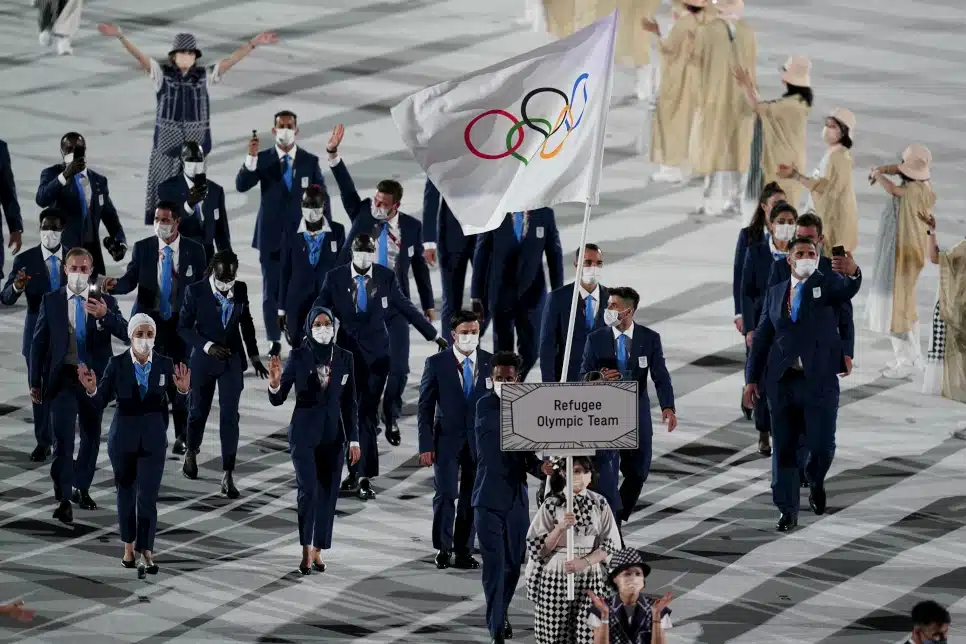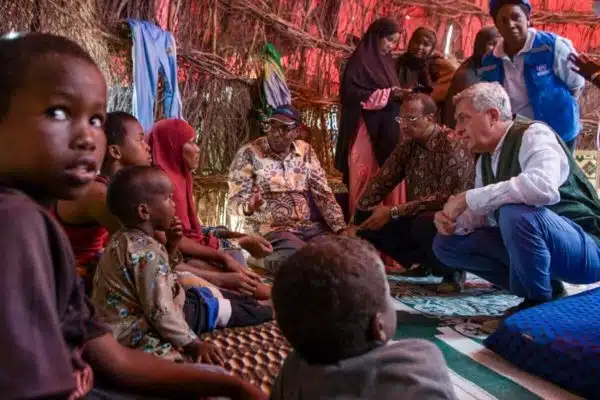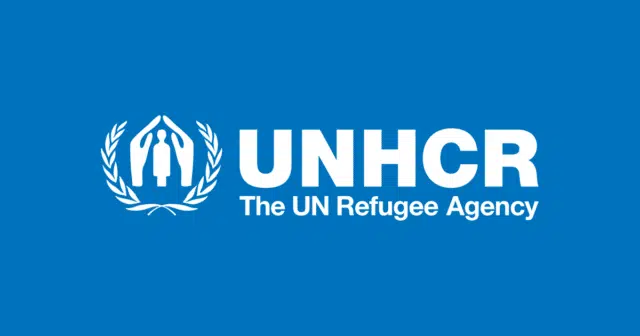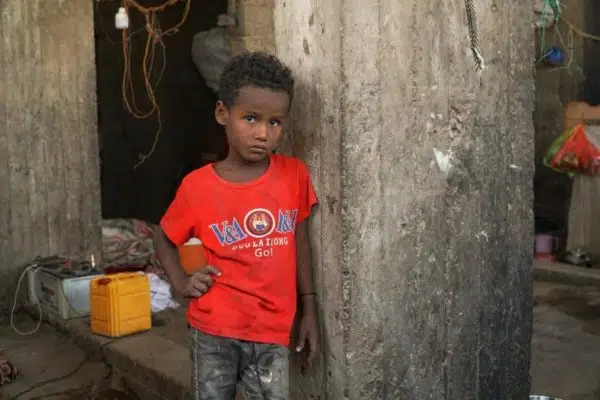
Members of the IOC Tokyo 2020 Refugee Olympic Team walk out during the Tokyo 2020 Olympics Opening Ceremony. © IOC/Ubald Rutar
MADRID – The UN High Commissioner for Refugees Filippo Grandi today extended UNHCR’s heartfelt congratulations to the Olympic Refuge Foundation (ORF) and the Refugee Olympic Team on receiving one of Spain’s most prestigious awards.
The Princess of Asturias Award for Sport was presented on Friday at a ceremony at the Campoamor Theatre in Oviedo, Spain, by HRH the Princess of Asturias.
“The Refugee Olympic team is a powerful testament to the resilience of refugees worldwide,” Grandi said. “It shows that when people flee their homes, they don’t have to abandon their hopes and dreams. These inspiring young people have overcome immense challenges and carry the hope and aspirations of the more than 100 million people around the world who have been forcibly displaced.”
The award is in recognition of the opportunities the ORF and Refugee Olympic Team provide to athletes from conflict zones and places where human rights are violated, to develop their sporting and personal capabilities. The jury noted that “The Refugee Olympic Team merges the highest values of sport, such as integration, education, solidarity and humanity, and represents a message of hope for the world.”
UNHCR collaborated with the International Olympic Committee (IOC) and ORF to bring refugee athletes to the Rio 2016 Summer Olympics as the first-ever Refugee Olympic Team and repeated this in Tokyo in 2021.
Attending the award ceremony on behalf of the UN Refugee Agency, UNHCR Assistant High Commissioner for Protection, Gillian Triggs, said: “UNHCR believes that refugee athletes, including those with disabilities, should have the opportunity to train and compete in the same way as everyone.”
“ORF provides year-round support to young refugees through safe, fun and developmental sport activities. We are proud to work with the ORF to achieve positive social and protection outcomes through sport and in support of the Refugee Olympic Team,” she added. “We are delighted they have won this award.”
UNHCR and the IOC have a long-standing partnership and collaborated in establishing the ORF in 2017. UNHCR and the ORF signed a memorandum of understanding this year to increase opportunities for refugees and other forcibly displaced people to take part in safe, developmental and elite sport.
Rio 2016 marked the first appearance of refugee athletes in the Olympic Games, with 10 competing under the IOC flag. They became role models for millions of refugees and internally displaced people, and true global ambassadors for the values of Olympism. Tokyo 2020 saw the second refugee team compete, with 29 athletes. Paralympic refugee athletes also participated in the Rio and Tokyo Paralympic Games, sending a powerful message for the full recognition of refugees with disabilities as individuals, athletes and valued members of their communities.
Aware of the benefits of sport, UNHCR has for some time been delivering sporting activities to refugee communities to help restore a sense of normalcy to those who have left everything behind, bringing communities together, forging friendships and building trust. Sport also offers protection and helps UNHCR and partners to identify people that may need specific assistance.
This award is an opportunity to highlight the plight of more than 100 million people around the world who have been forcibly displaced and a reminder of the positive contributions that refugees make to the communities that host them.
ENDS
Notes for editors:
More information on the Princess of Asturias award can be found here: https://www.fpa.es/en/princess-of-asturias-awards/
UNHCR, the UN Refugee Agency, is a previous recipient of the Prince of Asturias Award for International Cooperation. The award was bestowed on the agency in 1991 in recognition of its efforts in responding to forced displacement, in service of the millions of refugees across the world.
For more information on this topic, please contact:
- In Madrid, Maria Jesus Vega, vegam@unhcr.org, +34 670 661 263
- In Madrid, Rosa Otero, otero@unhcr.org, +34 673 469 103
- In Geneva, Stephen Pattison, pattison@unhcr.org, +41 79 500 87 74





